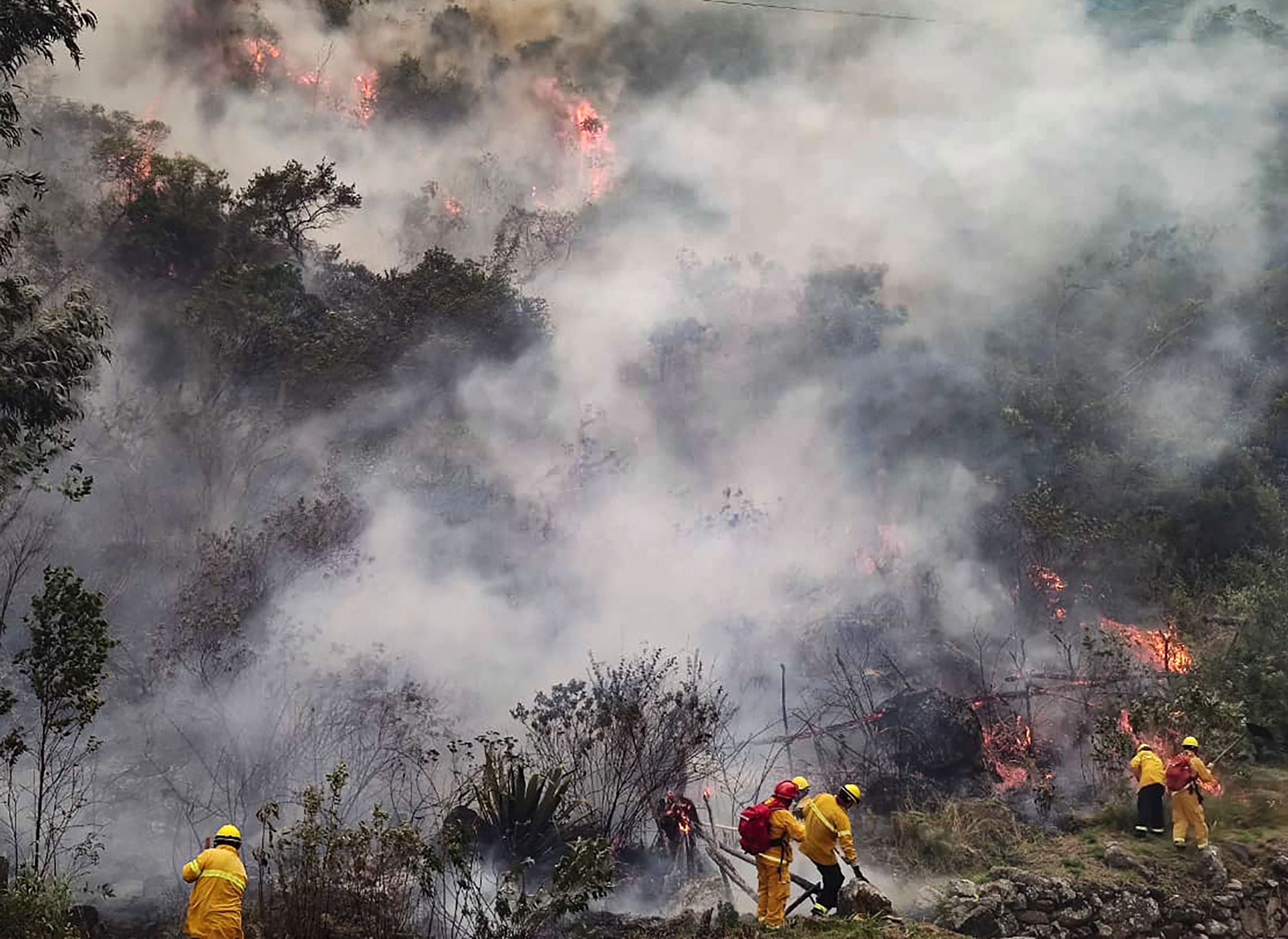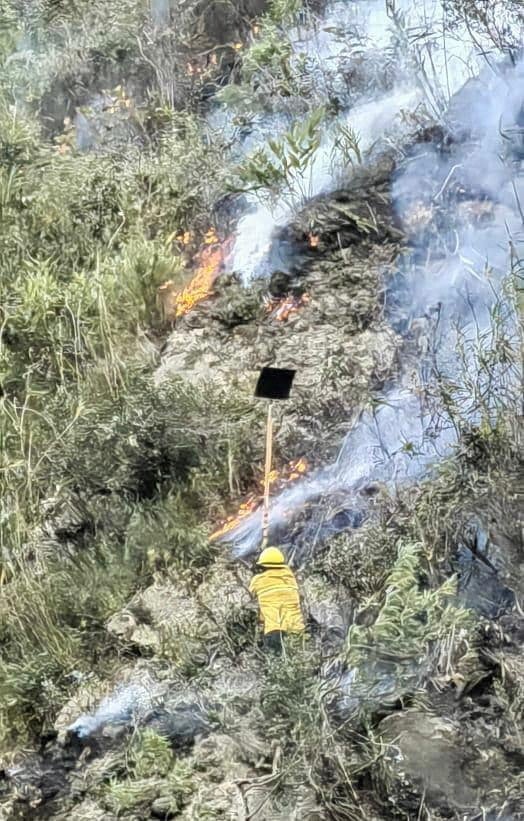Machu Picchu: Ancient city ‘threatened’ by wildfire in Peru
One analyst said recent reserach suggests climate change is increasing the length of the fire season around Machu Picchu

Your support helps us to tell the story
From reproductive rights to climate change to Big Tech, The Independent is on the ground when the story is developing. Whether it's investigating the financials of Elon Musk's pro-Trump PAC or producing our latest documentary, 'The A Word', which shines a light on the American women fighting for reproductive rights, we know how important it is to parse out the facts from the messaging.
At such a critical moment in US history, we need reporters on the ground. Your donation allows us to keep sending journalists to speak to both sides of the story.
The Independent is trusted by Americans across the entire political spectrum. And unlike many other quality news outlets, we choose not to lock Americans out of our reporting and analysis with paywalls. We believe quality journalism should be available to everyone, paid for by those who can afford it.
Your support makes all the difference.A wildfire is reportedly threatening to close in on the ancient city of Machu Picchu in Peru.
Firefighters have been battling the blaze that spread after local farmers burnt grass and debris in the area on Tuesday, according to Reuters.
The mayor of the nearby city of Cusco said the fire had already torn through a space roughly the size of half the Vatican City, the news agency reported.
The fire has been difficult to fight due its remote location high in the Andean mountains, it added.
Photos given to new agencies by Peruvian officails show firefighters attempting to tackle the blaze as it tore through trees and what appeared to be shrubland. Some pictures showed them attempting to tackle the fire on very steep hills.

Machu Picchu is an ancient Inca city cut into the rock high up in the Andes. The city stands at 2,430 metres above sea-level and views from the city take in the Amazon Basin.It is a UNESCO world heritage site, and was built more than 500-years ago.
It was not clear from the Reuters report how close the wildfire was from Machu Picchu or whether the wind would continue to spread the blaze towards the ancient city.
In order to establish the degree to which this fire was influenced by climate change - if at all - climate scientists would have to do what is known as an attribution study.
Ben Clarke, a PHD candidate in environmental research at Oxford University, said it wasn’t yet clear if climate change is increasing fire weather in South America but that there was now some evidence that greenhouse gases have increased the risk of fire weather in the Amazon specifically. However, Mr Clarke said that in the future the risk of fire would certainly increase due to future climate change across much of the continent.
Bob Ward, policy and communications director, at Grantham Research Institute on Climate Change and the Environment, said recent research suggested that climate changewas increasing the length of the fire season in parts of South America.
“Recent research shows an increase across parts of South America, including the area around Machu Picchu, in the length of the season when fire weather occurs, as well as the period during which conditions are most extreme,” he said.
“This can be attributed to climate change because of reductions in precipitation as well as higher temperatures which dry out vegetation more quickly.”
Matthew Jones, a research fellow at the University of East Anglia and the lead author of the recent research, said extreme “fire weather” - the hot dry conditions conducive to wildfires – was becoming more intense and frequent in many South American countries due to climate change, including Peru.
Climate models are showing that weather-related fire risks are shifting into uncharted territory compared with the natural climate of these places, he added.
Fire-prone weather is predicted to escalate even further once we get into the range of 2-3°C of global warming, Mr Jones said.
“As a result, it’s absolutely critical that governments double-down on their efforts to meet commitments made in the Paris Agreement,” he said.
Join our commenting forum
Join thought-provoking conversations, follow other Independent readers and see their replies
Comments